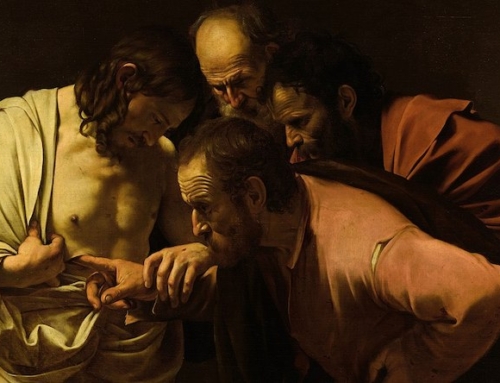Last year in this space on the first Friday of Lent, I observed that the liturgy pointed us toward thinking of penance as warfare. We saw there how penance serves a spiritual volley against the devil. But while penance can do us good, God can also use our penance to benefit another.
Penance helps to recover from the spiritual damage done by sin. “Raised up from sin, the sinner must still recover his full spiritual health by doing something more to make amends for the sin: he must ‘make satisfaction for’ or ‘expiate’ his sins. This satisfaction is also called ‘penance'” (CCC 1459). “Such penances help configure us to Christ, who alone expiated our sins once for all. They allow us to become co-heirs with the risen Christ, ‘provided we suffer with him'” (CCC 1460). The Council of Trent casts this notion of penance in the language of Scripture:
The satisfaction that we make for our sins, however, is done through Jesus Christ. We who can do nothing ourselves, as if just by ourselves, can do all things with the cooperation of “him who strengthens” us. Thus man has nothing of which to boast, but all our boasting is in Christ . . . in whom we make satisfaction by bringing forth “fruits that befit repentance.” These fruits have their efficacy from him, by him they are offered to the Father, and through him they are accepted by the Father.
We need to do penance for our own sins, because by penance we turn ourselves away from sin and toward God. St. Thomas says that “the will must abandon sin by moving in a contrary direction from those movements whereby it was inclined toward sin. Now, it was inclined toward sin by appetition [desire] and enjoyment in regard to lower things. Therefore, it must move away from sin by means of certain penances whereby it suffers some injury because of the sin that it has committed. For, just as the will was drawn toward consent to the sin by means of pleasure, so is it strengthened in the detestation of sin by means of penances” (SCG III 158).
These penances, besides making satisfaction for our own sins, can be borne for others (ST I‑II Q.87 A.8). In our country today, two of our major national sins are disrespect for human life and destruction of the family, which in large part comes from institutionalizing a flawed idea of marriage. Since the Church must oppose these injustices, the official sanction of these ideas endangers our religious liberty.
Since the 1960s, Catholics in the U.S. have only been obliged to fast on Ash Wednesday and Good Friday and to abstain from meat on the Fridays of Lent. In light of the recent developments in life, marriage, and religious liberty, however, the U.S. Bishops have issued a Call to Prayer. The bishops are encouraging us to, among other things, kick our fasting up a notch: to fast on all of the Fridays until Christ the King (November 24, 2013) or at least to extend the Friday abstinence from meat past Lent this year. You can make an online pledge to answer this call to prayer at www.usccb.org/fast. You can also sign up for weekly reminders and reflections.
By our fasting, we can help make satisfaction for our national sins. And through prayer and action, hopefully we can change our country’s culture for the better.
✠
Image: Jusepe de Ribera, The Penitent Magdalen







